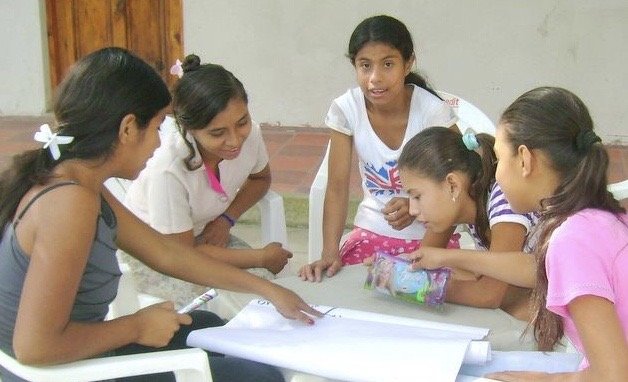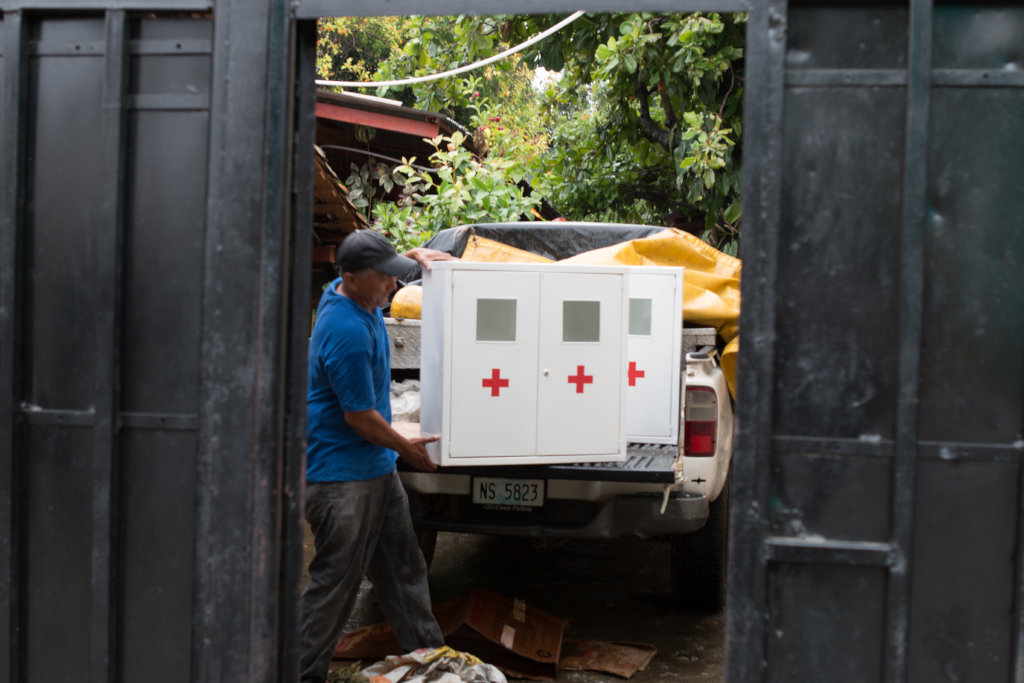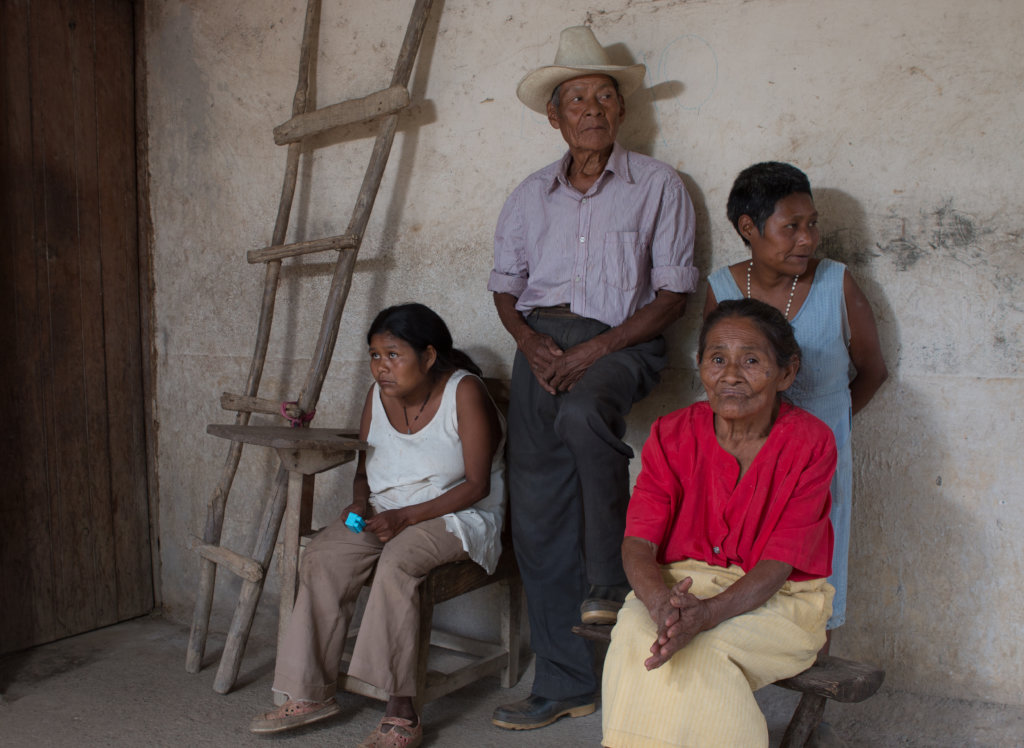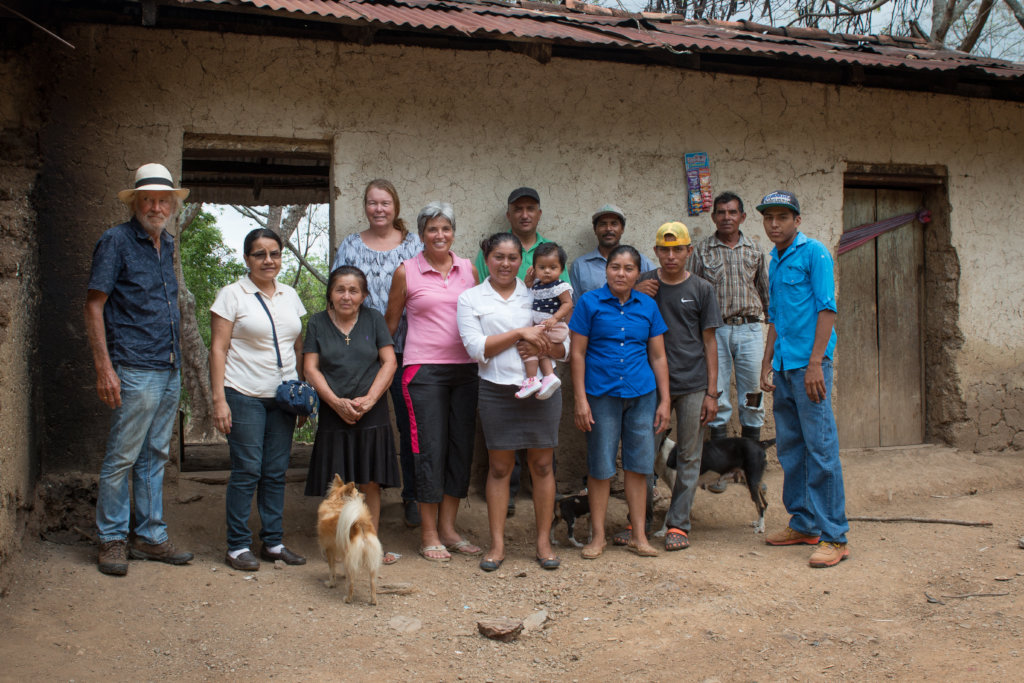



Mission Statement Nicaragua Projekt provides health care for campesinos and their families in remote mountain villages surrounding Ocotal, Nueva Segovia, Nicaragua. Nicaragua Projekt supports a day shelter for girls in Barrio Sandino, Ocotal, providing free meals, educational tutoring, counselling, and scholarships. Background Dr. Katrin Hennings and Reinhart Bein started creating and running a mobile clinic in 2005 in the Ocotal region, northern Nicaragua, on behalf of the German NGO German Doctors. Since then, they have directed the mobile clinic and Dr. Hennings has volunteered several times as a doctor. Through this work, they met Dulce Maria Calderon and Viola Castillo learned abou... read more Mission Statement Nicaragua Projekt provides health care for campesinos and their families in remote mountain villages surrounding Ocotal, Nueva Segovia, Nicaragua. Nicaragua Projekt supports a day shelter for girls in Barrio Sandino, Ocotal, providing free meals, educational tutoring, counselling, and scholarships. Background Dr. Katrin Hennings and Reinhart Bein started creating and running a mobile clinic in 2005 in the Ocotal region, northern Nicaragua, on behalf of the German NGO German Doctors. Since then, they have directed the mobile clinic and Dr. Hennings has volunteered several times as a doctor. Through this work, they met Dulce Maria Calderon and Viola Castillo learned about their project Casa Maria de Nazareth, which has existed since 1999 and supports girls who have grown up in extremely poor problem families with backgrounds of alcohol, drugs, prostitution and sexual abuse. In 2006, Dr. Hennings and Mr. Bein, together with other volunteer supporters, founded the German NGO Nicaragua Projekt e.V. Nicaragua Project is dedicated to medical and social projects in northern Nicaragua. Members promote health care as physicians and organizers and help raise funds to make good use of them in projects in northern Nicaragua. The association is engaged in the Ocotal region, Nueva Segovia and Somoto, Madriz in the north of Nicaragua on the border with Honduras. In this rural and partly mountainous or dry region people are extremely poor and the medical care of the population is particularly bad. The Centros de Salud are many hours walk away and they are increasingly very poorly equipped with drugs, experienced doctors are hardly found. Following the logistical withdrawal of German Doctors in 2015, the mobile clinic was taken over by the Nicaragua Project. The projects of Nicaragua Projekt have three main focuses: The mobile clinic Provides free medical care for the population in the north of the country, far from clinics, practices, Centros de Salud or pharmacies. The mobile clinic travels twice a year through the region and is led by volunteers from Germany and Europe. The doctors give up their salary and pay their own travel expenses, from 2018 onwards they also have to fund the costs for four weeks clinic by donations themselves - 2600USD per clinic (medicines, examinations, salaries for nurse and driver, car costs). This clinics takes place in coordination with the governmental health system. They are are connected to the Small community pharmacies or Botequines In order to permanently and sustainably improve medical care, Nicaragua Projekt also equips small pharmacies with medicines and supplies, and we paid for basic medical training (dealing with diseases, medicines and their use) of fourteen local health care providers called Brigadistas (volunteer, committed, non-medically trained villagers), from eight villages. Each village and surrounding farm area comprises between 500 and 1500 people. In May 2017, each brigadista received a mini-pharmacy called a botequine, containing medications and first aid supplies that they had been trained to administer. In American terms, the brigadistas are between an emergency medical technician and a licensed practical nurse. Every month Alba -our nurse- visits each village to resupply the botiquines and review the records of the brigadistas regarding their patients and diagnoses. In May 2018, we are planning a continuing education program for the brigadistas. We have a doctor who has volunteered her time to offer this training. The girls' project Casa Maria de Nazareth Nicaragua Project especially supports the NGO CASA MARIA de NAZARETH in Ocotal, Nicaragua. Here are girls, who grew up in extremely poor problem families - alcohol, drugs, prostitution and sexual abuse of the young girls are the background. The girls are cared for all day and can stay in crisis situations overnight. They are assisted during school attendance, receive two meals, can use a shower and are mentally cared for. Currently, we are accepting applications for a halftime psychologist. With our social workers we work on a close contact with the parents. After completing school, we finance a visit to an evening school to learn a profession and currently we are financing three girls to visit the University of Ocotal. The aim is to provide them with a livable perspective, to enable them to graduate and receive vocational training, to strengthen their sense of self-esteem and to teach them respectful togetherness and rights and obligations in the community.

Each of GlobalGiving’s nonprofit partners is required to send quarterly donor reports detailing the impact of their work. Here are some of their recent updates:
By Katrin Hennings | Project Leader
We work in 11 different communities in the north of Nicaragua. All of them are like a center and people from other villages walk - often for hours- to attend our clinic. This way we are able to cover... Read the full report ›By Katrin Hennings | Chairman
Beginning of the year is a good momemt to look back at the history of the projekt and how it developed. And this year even more, because it's the 25th anniversary of the girls project! 25 years... Read the full report ›By Katrin Hennings | Project leader, chairmen
2023 will end soon and I want to take this opportunity to look back at the history and development of our work for campesinos in the north of Nicaragua. In 2005, my late husband Reinhart Bein and I... Read the full report ›